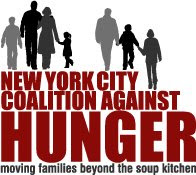 In an effort to raise city revenue and cut down on waste, Mayor Bloomberg recently unveiled a proposal that would charge shoppers a tax of 6 cents for every plastic bag they receive at the register. The proposal follows on the heals of a July initiative that required grocery stores to accept used plastic bags for recycling and, if passed, would allegedly generate a revenue of $16 million a year.
In an effort to raise city revenue and cut down on waste, Mayor Bloomberg recently unveiled a proposal that would charge shoppers a tax of 6 cents for every plastic bag they receive at the register. The proposal follows on the heals of a July initiative that required grocery stores to accept used plastic bags for recycling and, if passed, would allegedly generate a revenue of $16 million a year.However, some advocates are concerned that Bloomberg’s proposal to charge shoppers for each bag they use might unfairly burden low-income New Yorkers who are already overburdened by skyrocketing food prices. It also remains unclear whether emergency food programs will be asked to pay the same tax as grocery stores and bodegas.
Whether or not food pantries are eventually subject to the bag tax, the proposal brings attention to the high cost of plastic bags for many food programs. Though many city pantries rely in part on bag donations from pantry customers, almost all supplement these donations with purchased plastic bags. The average
This year, through a 2008 grant from the Citizen’s Committee for New York City a NYCCAH-sponsored network of food pantries in
The pilot project may serve as an alternate model for food pantries hit by plastic bag taxes.
For more information on reusable pantry bags see the most recent issue of Feed the Solution, NYCCAH’s newsletter for emergency food programs, or visit the website of the Brooklyn Alliance for Community Services.

No comments:
Post a Comment